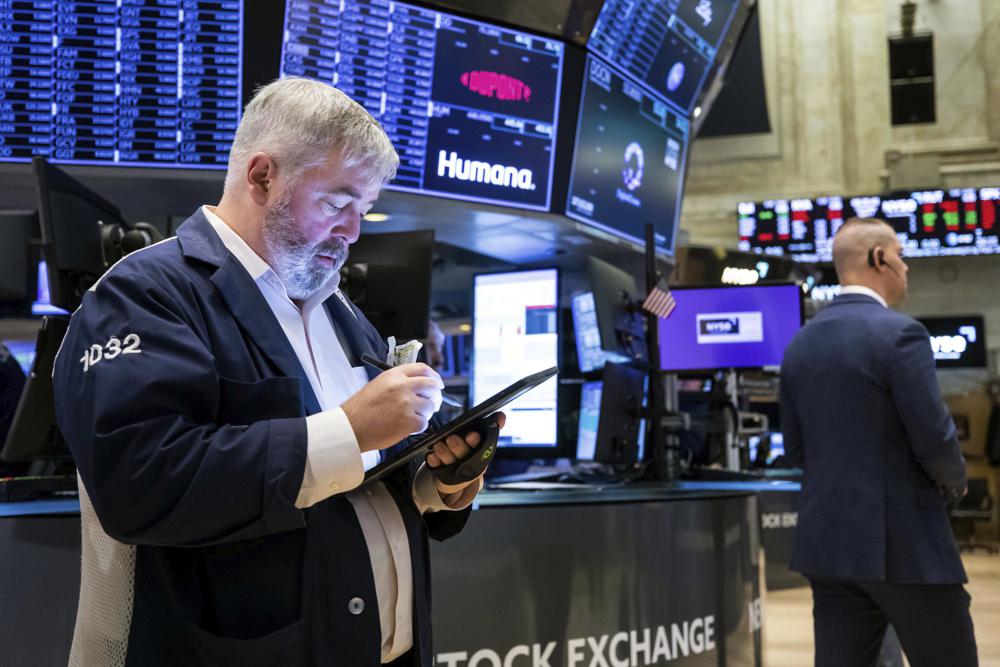
Stocks edged lower in afternoon trading on Wall Street Thursday as investors weigh the latest updates from the Federal Reserve amid concerns about rising inflation.
The S&P 500 was down 0.1% as of 1:46 p.m. Eastern. The benchmark index is on pace for its first weekly loss in four weeks.
The Dow Jones Industrial Average fell 32 points, or 0.1%, to 34,465 and the Nasdaq fell 0.5%.
Technology and communications stocks were among the biggest weights holding down the broader market. Chipmaker Nvidia fell 2.6% and Facebook parent Meta Platforms slid 1.3%. Big technology companies, with their pricey valuations, tend to have more heft in pushing the market higher or lower.
Retailers and other companies that rely on direct consumer spending also fell broadly. Starbucks fell 1.2% and MGM Resorts fell 2.9%. Health care stocks made solid gains. Pfizer rose 4.3%.
Computer and printer maker HP surged 16.1% after Warren Buffett’s Berkshire Hathaway disclosed an 11% stake in the company.
Bond yields rose. The yield on the 10-year Treasury rose to 2.65% from 2.61% late Wednesday.
Every major index is in the red for the week following two big losses that were partly prompted by concerns over the Fed’s shifting policy as it tries to combat inflation.
Minutes from the Fed’s meeting last month showed policymakers agreed to begin cutting the central bank’s stockpile of Treasurys and mortgage-backed securities by about $95 billion a month, starting in May. That’s more than some investors expected and nearly double the pace the last time the Fed shrank its balance sheet.
The central bank is reversing course from low interest rates and the extraordinary support it began providing for the economy two years ago when the pandemic knocked the economy into a recession. It already announced a quarter-percentage point increase and is expected to keep raising rates throughout the year.
Traders are now pricing in a nearly 80% probability the Fed will raise its key overnight rate by half a percentage point at its next meeting in May. That’s double the usual amount and something the Fed hasn’t done since 2000.
Persistently rising inflation has been threatening economic growth. Business have been raising prices on everything from food to clothing and that has put more pressure on consumers. Some companies have been unable to offset the impact from inflation, even with price hikes.
Duncan Hines and Birds Eye brands maker ConAgra cut its financial forecast for the year and said another round of price increases will be needed.
Wall Street is concerned about consumers eventually pulling back on spending as higher prices become too difficult to digest. Price increases were responsible for a rise in consumer spending in March, otherwise, the results revealed a pullback.
Russia’s invasion of Ukraine has added to concerns about inflation. Energy prices have been particularly volatile and pushed gasoline prices higher. U.S. benchmark crude oil prices fell 0.5%, but are still up roughly 27% for the year.
Investors received an encouraging update on the job market. The Labor Department reported that fewer Americans applied for unemployment benefits last week as layoffs remain at historically low levels.






